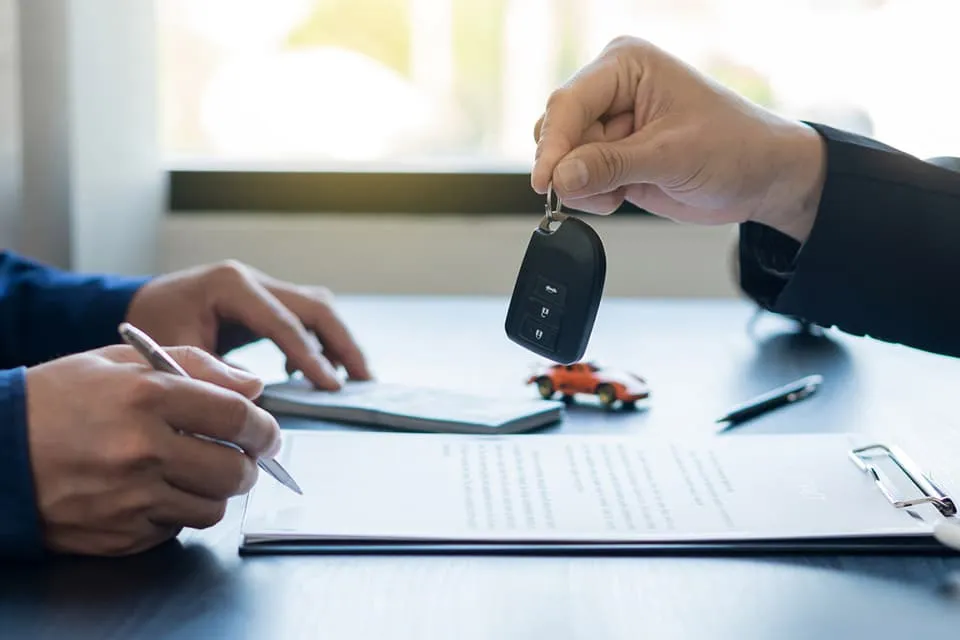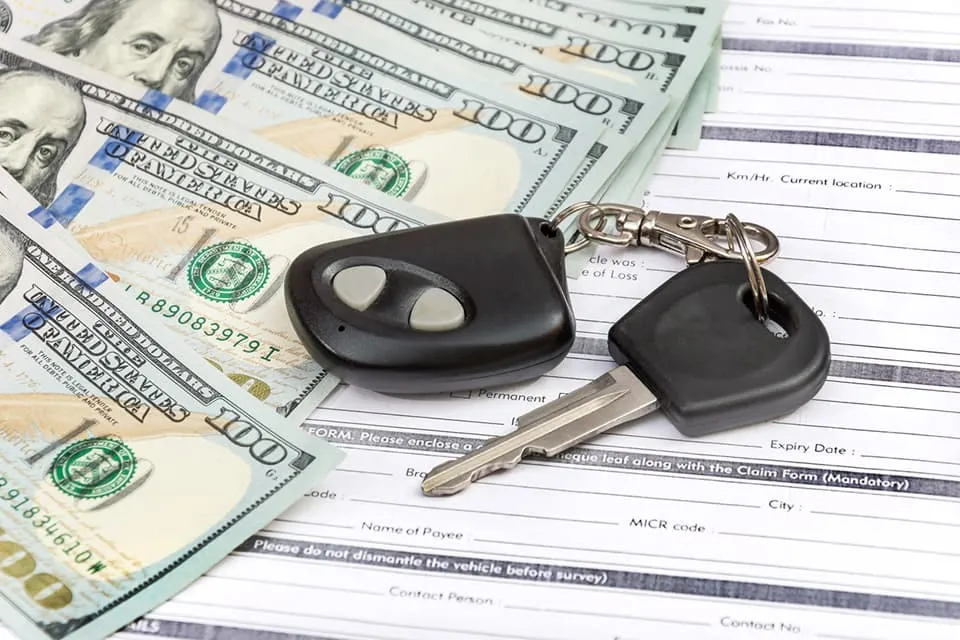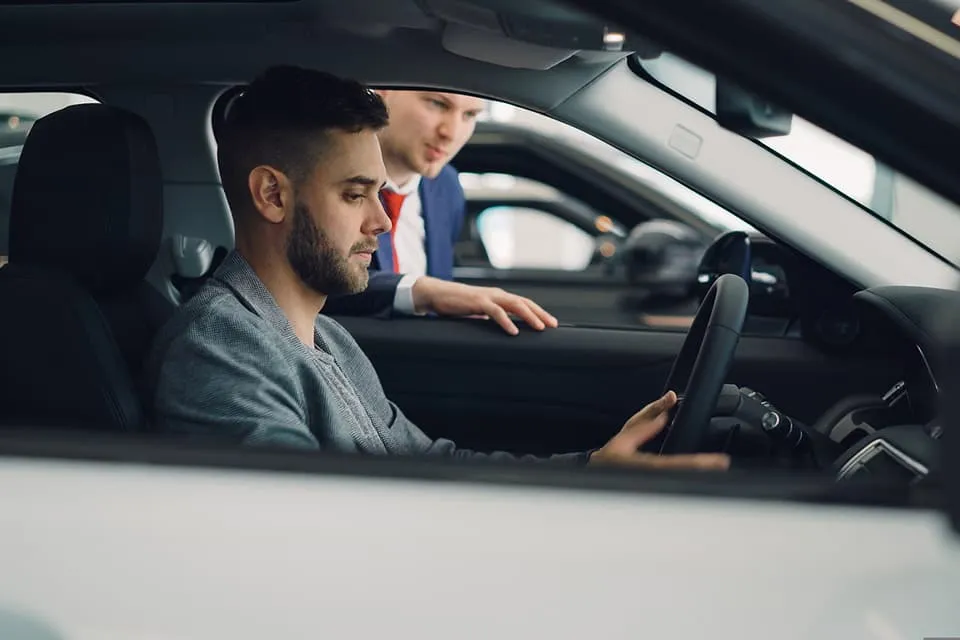How to Lease a Car in 6 Easy Steps

With more than 85% of new cars being used via a financing plan, a lease is a commonly used way to parcel the cost of a new car out into affordable monthly payments. There are advantages and disadvantages whenever you finance a vehicle, and leases won't work for everyone. Understanding what a car lease is can help you determine whether or not this plan works for you.
How Does Leasing a Car Work?
A car lease is a type of vehicle financing that gives you the ability to use a car for a set period of time; you'll pay a small set of fees up front, then another payment each month for the duration of your lease. Think of car leasing like renting an apartment; while you are renting, you can use the vehicle as though you own it, but unlike a car loan (or in the case of property, a mortgage) you do not own the vehicle once your lease period is over.
What Do You Need to Lease a Car?
You'll need proof of insurance, your credit score, a valid driver's license, and in some cases a cosigner to lease a car. You'll also want to ask yourself some questions about what you are looking to get out of your car lease.
- Do You Want to Keep the Same Car For the Foreseeable Future?
- How Well Do You Maintain Your Vehicle?
- Are You Okay With Extra Costs?
- What Type of Warranty Do You Want?
- Do You Want to Own Your Car?
Determining whether you want to lease a vehicle depends on your answers to these questions, what your budget is, and how favorable your lease terms are.
How Much Does It Cost to Lease a Car?

How much you'll pay for your car lease varies from dealership to dealership. Your specific costs will be determined by your lease terms. These terms will determine how much money you'll pay over the course of your lease, and what components will determine your various fees and payments. There are four main elements that make up lease terms: Capitalized Cost, MSRP, Interest Rate, and Residual Value.
- Capitalized Cost: The capitalized cost is the residual value of the vehicle deducted from what the dealer paid the manufacturer for that vehicle. This will be the overall price you would pay for the car, and you can negotiate to bring this price down.
- MSRP: Manufacturer's suggested retail price, or MSRP, is a number set by the manufacturer based on what they believe the vehicle is worth. While this price can't be negotiated, it's only a suggestion; dealers can set whatever price they choose once the car is on their lot.
- Interest Rate: The interest rate is set by the manufacturer but often raised by dealers to increase their profits. The higher the interest rate, the more money you'll pay each month and overall. Make sure to confirm you are getting the proper rate before signing any paperwork.
- Residual Value: The residual value at the end of your lease is how much the car will be worth at a future date. It may affect the overall costs you pay and your monthly payments. If the residual value is higher, you may get a payment from your dealer; if it's lower, you'll be the one paying. Residual value can also factor into your monthly interest charges, depending on the terms of your agreement.
The Essential Steps to Lease a Car
Step #1: Choose Your Car
The best place to start when leasing a vehicle is to choose what your ideal car would be. Think about what would best suit your needs: do you need plenty of seats for the kids? A storage space for tools? Or maybe you want something sleek and sporty? Whatever your requirements are, finding your vehicle will allow you to search for dealerships that have what you're looking for.
Step #2: Check Out The Car

Once you've found a dealer that has a car you want, go in and check out the vehicle. If the dealership gives you the option, test drive the car to see how it feels on the road. If possible, get the car inspected. This often isn't possible, so the next best thing is to get a vehicle history report. This will allow you to get a better idea of the car's accident history, and mileage.
Step #3: Compare Quote
Now that you've gotten a quote from the dealer for your car, shop around a bit. Find several other dealerships that offer the same make and model and see what they offer you for monthly payments, MSRP, capitalized cost, residual value, and every other facet of your lease terms. Getting multiple quotes gets you a better deal and can make negotiating your lease terms easier. Use GoodCar's lease calculator to get all the facts before you shop.
Step #4: Negotiate Lease
Let your dealer present lease terms and compare them to the offers you had from other dealerships. Take the two most competitive, and see who is willing to shave the most off your monthly payments. Lease terms are not set in stone, and negotiating can save you hundreds or thousands in the long-term. Stand firm with your price point, but be prepared to get rejected if you low-ball them.
Step #5: Settle On Terms
Now that you've chosen the best deal and negotiated even better terms, it's time to settle on your lease. You'll be discussing not only the monthly payments, but how much is due at signing, the length of the lease, any restrictions on mileage, buy-out price, early termination fees, and many other facets. Some of these terms will be negotiable (like the monthly payments, amount due at signing, allowable mileage per year, and terms for excessive mileage) and some will not (usually the early termination fees, and set price points like the MSRP.)
Step #6: Finalize Your Lease

You've chosen a vehicle, shopped around, negotiated a better lease, and settled on the terms. Now it's time to sign the paperwork. Read through every part of your lease carefully before signing on the dotted line, and make sure you've provided any documents they require. You'll usually need to give a driver's license and proof of insurance before the car can leave the lot. Once you leave, make sure to keep a copy of your lease agreement somewhere safe. From there, it's just a matter of making the monthly payments and following the tenants of the lease agreement . Drive safely!
Car Lease Frequently Asked Questions
Is it Worth it to Lease a Car?
Depending on your financial situation and personal preference, yes, it can be worth it to lease a car. If you want to try a car out for a bit without committing to a full purchase, a lease can allow you to do that for a reasonable cost. There are also options that allow you to own a vehicle at the end of a lease, which can function much like a car loan.
What Kind of Credit Score Do You Need to Lease a Car?
The credit score required to lease a car will depend on what a particular dealership requires. As a rule of thumb, you'll want to have a credit score over 630. The higher your credit score, the more favorable terms you can get on your lease. It's always best to improve your credit before engaging in long term financing plans.
How Can I Lease a Car with Bad Credit?
If you decide you want to lease a car with bad credit, make sure you understand the consequences. You will likely have a much higher cost of financing, and may find yourself falling into dealer traps like "lease-here, pay-here". These programs are used by dealers to offer older cars for higher payments, often weekly or biweekly as opposed to monthly. Overall, you'll end up paying far more than the vehicle is worth, and you don't even get to own it at the end of your lease.
What Should My Income be to Lease a Car?
Depending on what type of vehicle you want, and how favorable your lease terms are, there is a variety of income levels that can accommodate a car lease. Financial advisors generally recommend that you keep car payments under 10 percent of your gross monthly income, with financing plans lasting for no more than 4 years.
Where Can I Get More Information About a Car I Want to Lease?
Choosing to lease a vehicle is a major financial decision, but one that is often entirely necessary. Most people can't live without a vehicle, and purchasing one outright isn't always the best option. If you're on a budget you may be tempted to go with the cheapest lease you can. The issue with this is that unscrupulous dealers will often offload lower-quality vehicles by omitting details from the car's history. If a deal seems too good to be true, it probably is; make sure to conduct proper research beforehand.
The best way to research a vehicle you want to lease is by performing a vehicle history report. These reports will retrieve essential facts and figures about your car's history, and present them in a comprehensive and easy-to-read document. You can get vital information like:
- A car's accident history
- Whether your vehicle has ever been stolen
- Whether your vehicle has ever been used in a crime
- Total mileage
- Number of previous owners
By getting a full vehicle history report, you can make sure you aren't getting overcharged, or even worse, scammed.
FREE Vehicle Search
- Accidents
- Problem Checks
- Title Records
- Recalls
- Values
- Specs
-
InfoPay, Inc. (dba GoodCar) is an Approved NMVTIS Data Provider
-
-


























